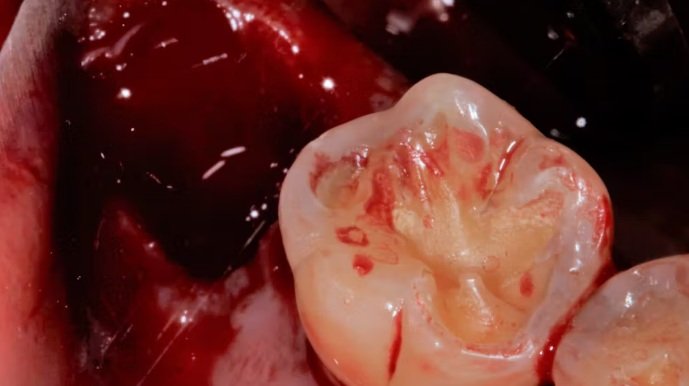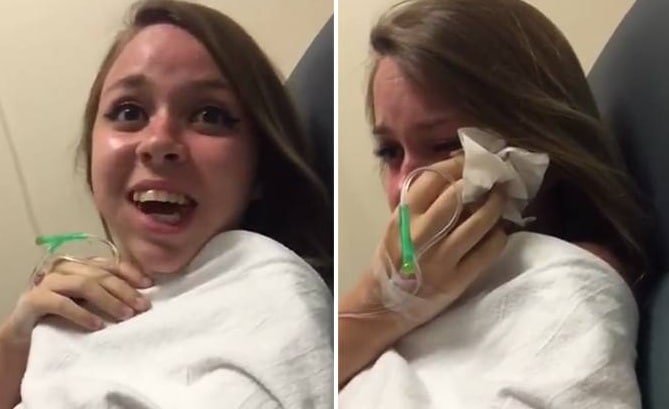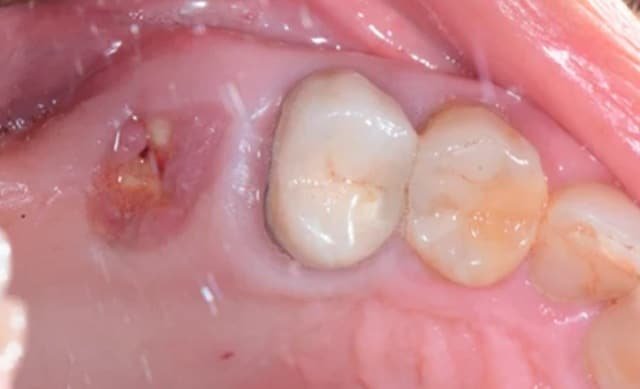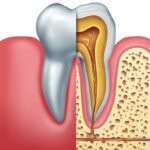tooth extraction bleeding after 2 hours is normal in most people after getting their teeth pulled.
To reduce the bleeding and avoid complications, you must act if you are still experiencing bleeding after two hours. In this case, you can take numerous actions to aid in halting the bleeding and promoting healing.
Tooth extraction bleeding after 2 hours:
Following tooth extraction, bleeding is common, especially in the first 24 hours.If bleeding persists for more than two hours, however, there are a variety of measures you may take to stop it:
- For at least 30 minutes, bite on a piece of clean, folded gauze or a tea bag over the extraction site. This will encourage clotting and assist in applying pressure.
- A blood clot might be disturbed by forceful mouth washing or spitting, leading to more bleeding.
- Avoid smoking, as it can impede healing and raise the possibility of a dry socket.
- When lying down or sleeping, elevate your head to assist in stopping bleeding.
After attempting these measures, if the bleeding is still severe, call your dentist or oral surgeon immediately for more guidance. They might advise further treatments to stop the bleeding or ask you to come for a checkup to ensure no issues exist.
To guarantee adequate healing and reduce the chance of complications, it is crucial to adhere to any post-operative advice given by your dentist or oral surgeon.
What happens if bleeding doesn’t stop after tooth extraction?
what happens if the bleeding doesn’t stop after tooth extraction?, you should act right once to avoid complications. The actions you should take are as follows:
- Apply pressure:Begin by applying pressure to the region for 15-20 minutes using a clean gauze pad or towel. Avoid spitting, washing, or sucking on the extraction site, as this might disturb the blood clot and cause the bleeding to resume. Maintain an elevated position throughout.
- Use a tea bag:If the bleeding continues, you can bite on a wet black tea bag for 30 minutes on the extraction site. Tea’s tannic acid aids in promoting blood coagulation.
- Speak with your oral surgeon or dentist: After attempting the steps mentioned above to stop the bleeding, you should call your dentist or oral surgeon immediately for additional assessment and care. To assist in stopping the bleeding, they could recommend medicine or carry out other operations.
If the bleeding is severe and you can’t contact your dentist, head to the nearest emergency room or dial 911 for immediate help. Severe bleeding is a blood clotting issue or other major complication requiring immediate attention.
How much bleeding is normal after tooth extraction?
Following a tooth extraction, some bleeding is typical. So how much bleeding is normal after tooth extraction ?
Generally, within the first 24 hours following the treatment, bleeding should lessen and then stop. You can use the following broad rules to assess what constitutes normal bleeding:
- Quantity of bleeding:For several hours following the extraction, you might anticipate some seeping or blood spots on the gauze pad. But, you should call your dentist or oral surgeon if you encounter severe bleeding that soaks the gauze pad or lasts longer than 24 hours.
- The initial hue of the bleeding at the extraction site should be a vivid red. The color of the bleeding may become darker red or brownish as the clot grows. However, if you smell something unpleasant or see pus oozing from the extraction site, this may indicate an infection and must be treated immediately.
- Bleeding time:As was already said, bleeding should lessen and stop during the first 24 hours following the surgery. Call your dentist or oral surgeon if bleeding continues after 24 hours.
Generally, paying close attention to how much, what color, and how long there is bleeding following a tooth extraction is critical. For additional assessment and treatment, contact your dentist or oral surgeon if you’re concerned that your bleeding is abnormal.
Can I go to sleep if my tooth extraction is still bleeding?
If your tooth extraction site is still bleeding, especially if there is a lot of bleeding, it is not advised to fall asleep,if you are asking can I go to sleep if my tooth extraction is still bleeding. By lying down, the head and heart are at the same level, which might enhance blood flow to the extraction site and aggravate bleeding.
Even while sleeping, keeping your head raised is crucial to lessen bleeding. You should sleep in a recliner or raise yourself with pillows. Also, abstain from alcohol, smoking, aspirin, and other blood thinners, as these can all worsen bleeding.
If the bleeding doesn’t stop, try applying pressure to the extraction site with a fresh gauze pad or piece of cloth while following the instructions in the previous response. After using these remedies, if the bleeding is excessive or doesn’t stop, contact your dentist or oral surgeon immediately for a more thorough examination and course of action.
Check for clotting: After 20 minutes, carefully remove the gauze pad or piece of cloth and look for the presence of a clot. Once a clot has developed, you can release the pressure.
If bleeding continues, repeat the above measures as necessary until it stops. See your dentist or oral surgeon for more advice if bleeding lasts for a long time or if you are concerned about the bleeding volume.
Don’t gargle with water: For the first 24 hours following the extraction, refrain from cleaning your mouth because doing so may disturb the blood clot and increase bleeding.
Relax and avoid strenuous activity for the rest of the day after the extraction. Also, sleeping with your head up can lessen bleeding.
See your dentist or oral surgeon immediately if the bleeding continues after trying these steps for more than 30 minutes. They might need to take further measures, including using a specific bandage or dabbing a medicinal solution on the extraction site, to reduce the bleeding. Excessive bleeding must be treated right away to avoid further complications, such as infections or blood clotting disorders.












